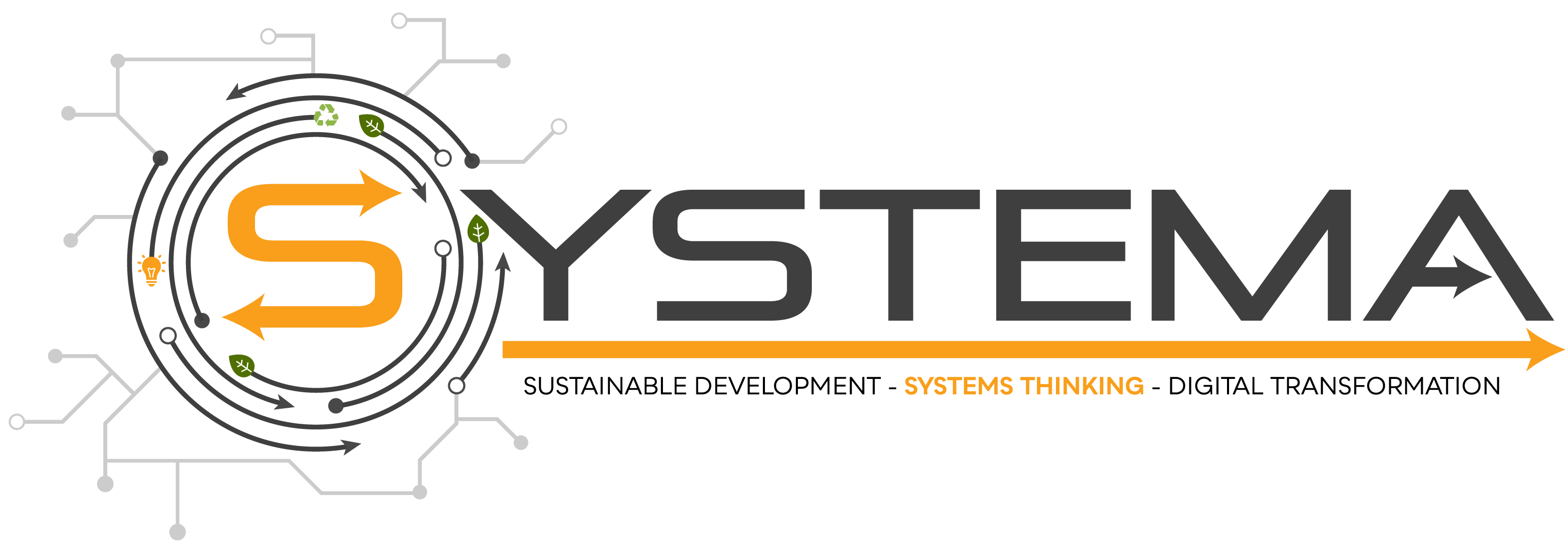Abstract
This article will analyze how digital transformation is transforming our lives. The way we work, as well as how we entertain ourselves or spend our free time, has been radically changing in the last few years. The emergency situation caused by the pandemic has accelerated the pace of this change even more, forcing people and organizations to abandon doubts and uncertainties and adopt new technologies faster than they had counted on. We’ll see how this transformation is a complex process and how thinking in systems can help to make the right choices.
Keywords: systems thinking, digital transformation, sustainable development, digital skills, soft skills
Digital Transformation short history
Our society's development has always been based on the value of knowledge. This asset is currently undergoing a profound transformation. New and emerging technologies are breaking down the boundaries that relegated information into specific sectors and socio-economic structures, setting knowledge free to become a collective good and creating the conditions for an economic and social development never before seen.
Although digital transformation is perceived by most as a recent phenomenon, probably due to its growing popularity, the idea of offering digital products or services was already well-established in the 90s and early 2000s1. For example, in the retail sector, mass media were already considered important digital channels through which customers could be reached with advertising campaigns, even though purchases were mainly made in physical stores, often by cash.
From 2000 to 2015, the spread of smart devices and social networks led to a drastic and epochal change in the way customers communicated with businesses and with public administration. At the same time, customers changed their expectations about what was an acceptable response time and the channels for receiving it. Organizations began to understand that they could communicate digitally with their customers on an individual basis and often in real-time. The growing availability of digital payment solutions such as PayPal then contributed to the development of e-commerce by breaking down the physical barriers of online commerce.
Nowadays, digital transformation is mainly focused on mobile devices and on the possibility of generating personalized information and services2 thanks to the large-scale availability of information generated by the same technologies. To get an idea of the dimension of the phenomenon, just think that from 2015 to 2020, we went from 15 billion to 200 billion smart devices connected to the internet3.

Digital transformation is, in fact, the daughter of the information (and knowledge) society
The first phase of the digital transformation was characterized by solutions (devices and applications) that responded to the need to produce, access, store, manage and exchange information, a staggering amount of information that had never been available before (according to a 2017 IBM study, 90% of the data available that year had been produced in the previous 2 years).
In the earliest phase of digital transformation, "phase 1.0", development was concentrated above all on making the various technologies more powerful and faster individually: smartphones, computers, the internet. This was a phase in which the thinking which went into design faced contingent problems, favoring the proliferation of stand-alone solutions: databases, applications, desktop computers, smartphones, and the internet are the children of this approach.
Today, the focus has instead shifted from individual devices to the connection of devices and systems for generating value: a network of objects endowed with intelligence, powered by technology. Change, therefore, is no longer aimed at solving a specific need but is focused on restructuring organizations to generate value through the efficiency and effectiveness of processes. The goal is the transformation of the entire system, not of a single aspect.
What will the next phase of Digital Transformation be?
We are now at the beginning of a new phase of DT, where digitization, mobilization, augmentation, disintermediation and automation are fueling a "perfect storm" of change. This is not coming about gradually, but faster than ever before: change has become exponential. What used to be inanimate and disconnected is now wired and intelligent. New technologies and innovations are often combined synergically: they amplify each other, dramatically boosting the pace of change. Big Data is being fueled by Quantum Computing, Artificial Intelligence by the Internet of Things (IoT), and robotics by Deep Learning. Let's think about what is happening: self-driving cars or computers that can learn and think are not science fiction: they are real!
What are the changes we're experiencing?
As a result of this transformation, our lives have been changing dramatically. The way we work, entertain ourselves or communicate is radically different from how it was only a few decades ago. The transformation we are going through is not only technological. It has a huge impact on (almost?) every aspect of our file: work, entertainment, sociality, politics, ethics, environment, health... whatever.
Let's think about how things are changing in our jobs: we're likely to have done some kind of remote working4, probably computers or robots are substituting us at doing things that can be automated and we undoubtedly need to learn new skills frequently to be able to use new tools or improve our productivity.
Let's also think about what impact each of these aspects has not only on our work, but on our lives in general. Speaking of remote working, for instance, this is something that profoundly modifies our lifestyles, changing the way we use or share spaces and tools in our homes, which can also affect our family routines and relationships. It changes the way we divide our time between work and personal/family life. It has an impact on pollution, since we don't need to use our cars to commute every day, and on certain businesses (do our companies need the same amount of space as before to host their workers?). Working from home also has an influence on job agreements, workers' rights, etc.
Things are definitely becoming more and more complex… every day.
System thinking is a key skill to manage Digital Transformation How can we manage this rising complexity? How can we drive change (rather than being driven by it)?
Digital transformation affects the nature of relationships between individuals, as well as those between the functions of an organization or the parts of society: it represents a huge chance for growth and development but it is not without challenges and risks.
The digital transformation process should be guided by a “holistic” approach, capable of perceiving the whole as more than the sum of its parts. A systems approach, which focuses on how the constituent parts of a system are related and how they function over time and in the context of larger systems.
It, therefore, becomes necessary to make a cognitive leap that will allow us to move from an approach oriented towards the efficient production of effective objects or processes to an approach to thinking that stimulates us to question our purpose in producing them as well as our real need for these objects or processes. A system of thinking that allows us, ultimately, to ponder the rationale behind their creation, evaluating ex-ante their actual value in the future of the organization or the society. What we need is to Think in Systems (Systems Thinking).
1https://auriga.com/blog/digital-transformation-history-presentand-future-trends/
2https://www.researchgate.net/publication/322467178_History_of_Digital_Transformation
3https://www.intel.com/content/dam/www/public/us/en/images/iot/guide-to-iot-infographic.png
4https://www.eurofound.europa.eu/publications/report/2020/living-working-and-covid-19

